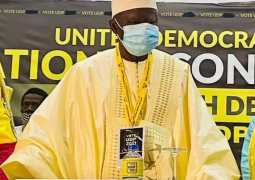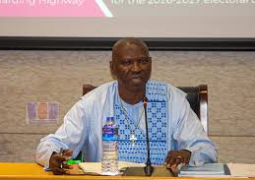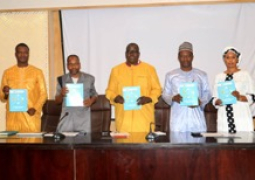On the 9th of August 2022, Lawyer Sagarr Jahateh, the defence lawyer representing Sainabou and the two others during her submission, claimed that the “country’s central prison is known to be champion of human rights violations”, and that further remanding the accused persons at the facility without any charges is a “violation of their fundamental human rights and liberty.”
Sagarr further added that the continued detention of her clients at the Mile Two prison is “illegal and in violation of their liberty and other international treaties that the state is binding to.”
Nevertheless, in her ruling on Thursday 11 August at the Banjul High Court, Justice Jobarteh, said: “The averments in the affidavits of the applicants relating to “inhumane and degrading” treatment as contained in paragraph 15 of the affidavit in support of the originating summons have been struck out for not in compliance with Section 90 of the Evidence Act.”
The argument of the defence counsel on the issue, she added, therefore does not stand on anything and it is accordingly “disregarded”. “I have taken note of exhibit MM1 attached to the additional affidavit in support of the summons. The medical report of the second applicant attached is in French which has not been translated and the court can’t rely on same. Similarly, a medical report from Westfield Clinic attached does not bear name and has not been signed by any medical personal thus does not have any nexus with the second applicant. The court, therefore, is minded not to rely on them,” she ruled.
She continues: “However, if the second applicant has any complaint of health issues at the Mile Two Prison, the Director General of the state central prison is directed to ensure that the second applicant is taken to the hospital for medical attention.”
“There has not been any delay in the criminal justice of the applicants that is not justified by any good reasons. In fact, they have been brought to court promptly and within “reasonable time” as stipulated by the constitution.”
Justice Jobarteh further added: “After going through the processes before the court and listening to the submission of both sides, I shall formulate two issues for determination in this case which is “whether the averments in the applicants’ affidavits are in compliance with the rules of Affidavit Evidence and whether the applicants should be granted bail.”
“I have carefully gone through the averments in the affidavits of the applicants. It is without doubt that legal arguments have been raised in them. When a law is specific and makes it mandatory for a prescribed form and mode to be used in processes, the same should be followed without deviation.”
Section 90 of the Evidence Act, she said, is clear, unambiguous and the world “shall” is used to the exclusion of legal arguments in affidavits. “The legal arguments raised in the averments of the applicants’ affidavits are therefore unjustified by law. I therefore, rule issue one in favour of the prosecution and strike out paragraphs 13 (b) (c) and (d), 17, 18, and 24 of the affidavit in support of the originating summons. Paragraphs 15 and 16 of the affidavit of the summons are also struck out.”
Aside from the paragraphs highlighted by the state counsel, Justice Jobarteh stated that the court has carefully perused all the averments in the affidavits and “I hold paragraph 14 (b) (c) and 15 of the affidavit in support of the originating summons to be in contravention of Section 90 of the Evidence Act and they are hereby struck out.”
“Paragraphs 5, 6, and 8 of the affidavit in reply do not also comply with the rules of affidavit evidence and they are also struck out.”





